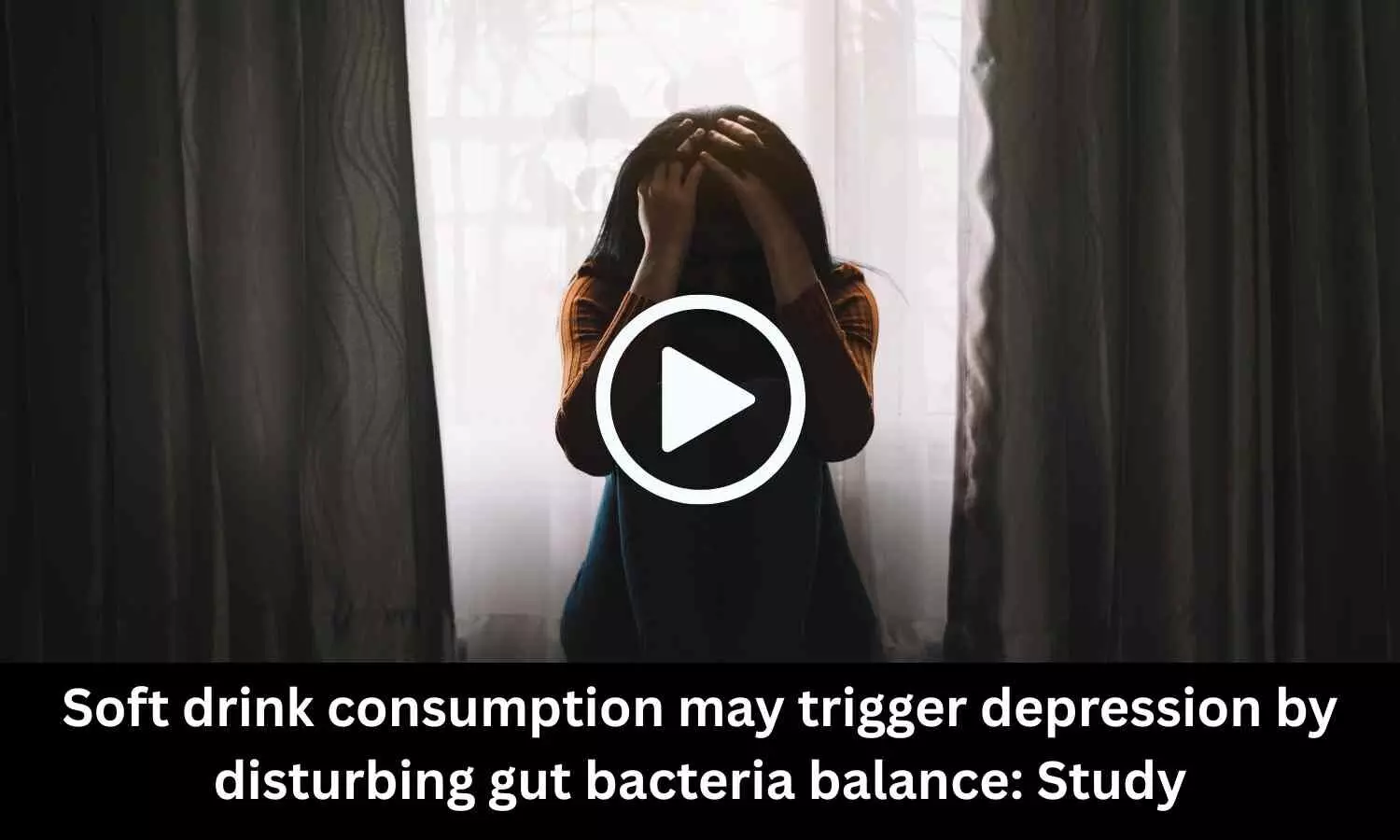Soft Drink Consumption May Trigger Depression - Here is What Latest Study Says
- byDoctor News Daily Team
- 24 October, 2025
- 0 Comments
- 0 Mins

Researchers have found a compelling link between soft drink consumption andmajor depressive disorder(MDD), especially in women. This study, published inJAMA Psychiatry, analyzed data from the Marburg-Münster Affective Cohort Study (MACS), involving 932 adults aged 18-65, including 405 diagnosed with MDD and 527 healthy controls. Soft drinks, popular especially among children and teens, are loaded with simple sugars like glucose and fructose, spikingblood sugarlevels. Excess sugar that the intestine can’t absorb fuels the growth of harmfulgut bacteria, which cause inflammation and weaken the gut’s protective barrier. This triggers systemic andbrain inflammationlinked toanxietyand learning issues. Meanwhile, diets promoting anti-inflammatory short-chain fatty acids (SCFAs) from beneficial bacteria supportgut healthand reduce inflammation, counteracting these negative effects of sugary drinks. The researchers used multivariable regression and analysis of variance (ANOVA) to explore associations between soft drink intake and depression diagnosis and symptom severity. They also conducted mediation analyses to examine if specific gut bacteria—Eggerthella and Hungatella—were involved. Soft drink consumption was self-reported, and gut microbiome diversity was assessed from stool samples. Findings revealed that each additional soft drink increased the odds of depression by 8%. Notably, women who consumed more soft drinks had nearly 16% higher odds of depression and greater symptom severity, while no such association was seen in men. Depressed individuals showed higher body mass indexes (BMI), but adjusting for BMI and antidepressant use did not alter the findings. Women with depression also exhibited altered gut microbiomes, with elevated levels of Eggerthella, a bacterium linked to inflammation and mood regulation. Mediation analysis indicated that this bacterium partly explained the relationship between soft drink intake and depression. The authors caution that, as an observational study, causality cannot be confirmed, and bi-directional effects may exist, with depressed women possibly consuming more soft drinks. Nevertheless, the data emphasize the urgent need for public health strategies to reduce soft drink consumption, especially among women, to potentially mitigate depression risk and improve gut health. Reference:Thanarajah, S. E., Ribeiro, A. H., Lee, J., et al. (2025). Soft Drink Consumption and Depression Mediated by Gut Microbiome Alterations. JAMA Psychiatry. doi: doi: 10.1001/jamapsychiatry.2025.2579. https://jamanetwork.com/journals/jamapsychiatry/fullarticle/2839019
Disclaimer: This website is designed for healthcare professionals and serves solely for informational purposes.
The content provided should not be interpreted as medical advice, diagnosis, treatment recommendations, prescriptions, or endorsements of specific medical practices. It is not a replacement for professional medical consultation or the expertise of a licensed healthcare provider.
Given the ever-evolving nature of medical science, we strive to keep our information accurate and up to date. However, we do not guarantee the completeness or accuracy of the content.
If you come across any inconsistencies, please reach out to us at
admin@doctornewsdaily.com.
We do not support or endorse medical opinions, treatments, or recommendations that contradict the advice of qualified healthcare professionals.
By using this website, you agree to our
Terms of Use,
Privacy Policy, and
Advertisement Policy.
For further details, please review our
Full Disclaimer.
Recent News
Can Taking 4,000 Steps Just Once a Week Lower the...
- 24 October, 2025
Cochrane Review Supports Immediate Skin-to-Skin Co...
- 24 October, 2025
Soft Drink Consumption May Trigger Depression - He...
- 24 October, 2025
GERD Linked to Higher Risk of Developing Alcohol U...
- 24 October, 2025
Daily Newsletter
Get all the top stories from Blogs to keep track.


0 Comments
Post a comment
No comments yet. Be the first to comment!